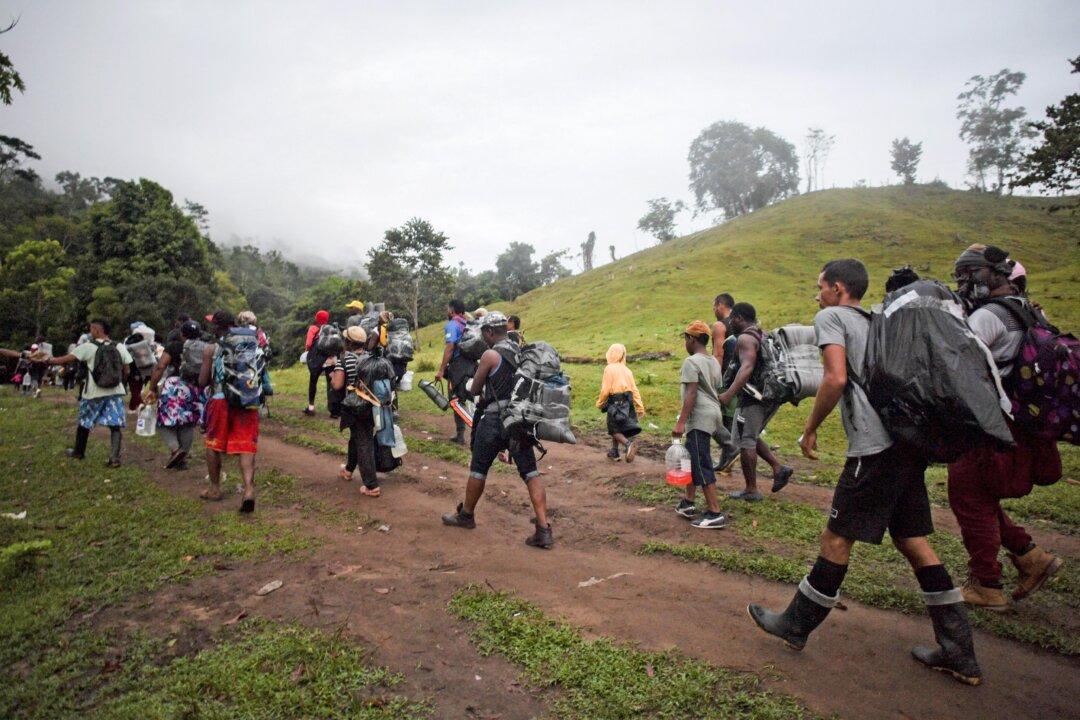The Biden administration has announced new joint efforts with the governments of Panama and Columbia to prevent illegal migration through the treacherous Darién Gap that connects North America to South America.
U.S. Homeland Security Secretary Alejandro Mayorkas issued a joint statement on Tuesday, along with Panamanian Foreign Minister Janaina Tewaney and Colombian Foreign Minister Álvaro Leyva Durán, stating the three countries would work together over a 60-day period to “end the illicit movement of people and goods through the Darién by both land and maritime corridors, which leads to death and exploitation of vulnerable people for significant profit.”





